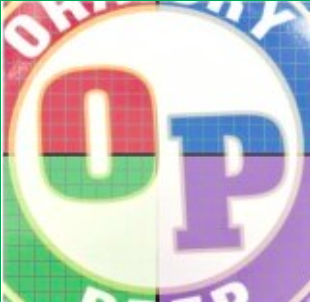Politically, Where Does Oratory Fall?

November 11, 2019
Introduction
As much of the more opinionated ones of us have likely found, Oratory consists of a diverse and often highly contrary collection of opinions. Besides maybe religion, nothing brings out debate faster in people than politics. Many people love debate and discussion both to advocate their own opinions and hear the thoughts of others; for instance, that’s why we have a History and Politics Club. Even within the open atmosphere of that club, sometimes the flow of discussion tended to come from one part of the political spectrum. That’s understandable. As a freshman, I thought that there must be at least one group of mostly-silent dissenters. I wanted to discover how many people in the club hold different views from the majority in hopes that it would improve the representation of those views in future discussions.
However, I admittedly bungled my attempt. My first survey last year had plenty of polarizing language that tended to separate people into simplistic categories. While that initial attempt made some attempt at providing variance, it was still mostly along one black-and-white axis. In an attempt to be funny, I made the “extremes” of some of the questions even more exaggerated instead of making them rational while still decisive, effectively reducing some people from both sides to caricatures. As a result, the poll didn’t yield much useful data.
This year, I chose to do better.
Disclaimers
- This article is not a list of data: instead, it is an analysis of the data. As a result, I mostly focus on things that perhaps went against common expectations.
- It’s no secret that Oratory Prep leans conservative and to the right, probably partially due to it being a primarily middle-class, private Catholic school. I would like to remind everyone of the school-wide poll last year right before the 2018 elections; while, if the school was representative of the general population, the Republican candidates would have all won according to that poll, that wasn’t quite the case in 2016.
- In order to make both reading and writing this article less boring, I won’t spend too much time on findings that are unremarkable nor will I mention every question.
- If you want more specific information about the data, please contact me.
- Also, please note that there were 33 responses, all from the History and Politics Club. Their emails were not recorded.
And Now … The Findings!
My poll began with diagnostic questions: trying to ascertain people’s grades, how they got their political news, how involved they were in politics, et cetera. 45% of the responders were seniors, with juniors at 24%. By the 2020 presidential election, about 55% of the total respondents will be able to vote. When you think, it is incredible that a good proportion of our upperclassmen will soon play a role, however small, in deciding who the next President of the United States will be. The next major question focuses on how the sample group got their political news, in which you could select up to 3 responses. The first was digital news apps (think AP, Fox, CNN, ABC, etc.), the second was social media, and the third was cable TV. While cable TV still beat out six other options, the data would seem to indicate that among our generation it is losing popularity as it loses its exclusive, ubiquitous status. I wouldn’t be surprised if polls of the general population begin to reflect that as the younger generations become more common in the political pool.
The next unofficial section, while short, is extremely important. Three questions assess the political party, the left-right lean, and the authoritarian-libertarian lean of the respondent. For the last question, the actual definition of authoritarian and libertarian significantly differs from the “pop-politics” definition of it. I recommend that all readers here take a political compass test; you may find that you are not what you have labeled yourself to be. Honestly, the same is true to a lesser degree for “left” and “right”. The actual results for this section are nothing earth-shattering when you consider Oratory’s widespread political leanings. As expected, Republican, moderate right, and libertarian each won a majority of the 33 votes but not to an overwhelming degree.
Now, we journey into the weeds of 2020 opinions: the presidential race. I had three questions for your first, second, and third choices, respectively. However, there is no option in Google Forms to stop someone from selecting the same individual in all three. I pleaded with people in the question to not do that, and I also added an “I won’t compromise” option for those who absolutely cannot stomach voting for anyone besides their top choice. However, I suspect at least a few people ignored that, but I have no means of finding out how many without going through individual responses. The pie charts for this series look very interesting. Since there is only one genuine Republican candidate and many Democratic candidates, the chart for first choice has one large slice and then tons of tiny slices; the Republican vote is mostly united behind their only candidate, while obviously the Democrats are currently in primary season. For the first-choice poll, Donald Trump won (20), with the second place going to Andrew Yang (4) and the remainder all having one vote. The second-choice poll had ⅓ decide not to compromise, with a three-split tie for second place between Donald Trump, Andrew Yang, and Joseph Biden (4 votes each). Bernie got third place there. The third-choice poll had a majority (19) refusing to compromise, Joseph Biden in second (3), and Trump tied with Tulsi for third (2).
Coincidentally, those questions were also where I made my first mistake. I accidentally left on an “Other” option, which gave us these interesting responses for whom some people wanted the next president to be.
- “Democracy is an inefficient system, and therefore I will not vote nor would I select my preferred candidate.”
- Rand Paul (who isn’t running)
- Mickey Mouse (who’s probably running)
- A rant about Hillary Clinton (who isn’t running)
- See Above (I don’t think that person realized they could just select “I won’t compromise”).
The next question asks which of the current presidential candidates, if any, would the respondent specifically wish to become Vice President. Five people voted Donald Trump, which begs the question, who would be President in that case? Besides him, several candidates were wanted as VP, with Joe Biden and Andrew Yang both holding 3 votes. Somebody also wrote in Chris Christie, and another person Mike Pence (who I didn’t include because he isn’t running for President). A plurality also thought that the DNC/TV networks have handled the election/debates poorly, a choice at least some members of both parties agreed on.
Finally, we hit our last two big-ticket items. First, voters could select up to 6 options for their most important issues in the 2020 race out of 12 categories. For 33 responses, that means 198 issue-votes could be cast, although in the end only 179 were. There was some confusion by the answerers over one of the wordings of an answer. I had “gun control/gun regulation/the lack of it” as an option. While someone could and did interpret that as me saying that there was a lack of gun control (ie. not enough), while what I meant was that you should vote for that issue if you are on either side of the divide. Whether you want “gun control” or “the lack of it,” you could have voted for this response (basically, if you cared about guns one way or the other). That was my mistake. “Handling of other countries (such as China)” came in first with 27 votes. Healthcare and the US-Mexico border tied for 2nd place with 23 votes each; climate change and pro/anti-reproductive rights (another “Pick either side” one) tied for 3rd with 18 votes each.
For our final question, I wanted to leave a positive taste in everyone’s mouth in as close to an authentic way as possible by asking “Who is not among your top choice that has impressed you in their conduct, rise to prominence, policies, intensity, etc (in a good way)?”. With each person able to give up to 2 responses, 51 out of 66 answers were given. Andrew Yang defeated the competition with 10 votes, followed by Donald Trump (8), Pete Buttigieg (7) and Elizabeth Warren (5).
While I recognize this poll was far from airtight, it is certainly an improvement over last year. I plan to continue this polling tradition until I graduate, getting better data and asking better questions as time presses on. I admit, I am already a bit apprehensive about making the Fall 2020 poll.
